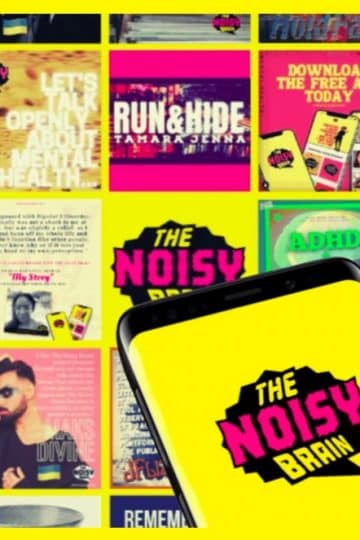What can we do to prevent suicide?
Mental Health
A new study has found suicide discussions at work are being hampered by outdated language, including the stigma-reinforcing term 'committed suicide'. We spoke to Clive, an instructor who trains employees in suicide prevention, including the use of language...
New research by social enterprise MHFA England, released to mark World Suicide Prevention Day on 10 September, found most employees are still using inappropriate and outdated language to discuss suicide at work.
Two-thirds (66%) of employees are using harmful terms such as ‘committed suicide’. This phrase stems from a time when suicide was illegal. Its use can signal blame, contributing to stigma. Only 10% of employees would know that the best way to save the life of someone thinking of suicide is to ask them directly whether they have a plan to end their life.
Alongside this, nearly a quarter (23%) of employees are responding to colleagues who share their experience of suicidal thoughts with unhelpful phrases such as ‘please don’t do anything stupid.’ This type of language contributes to the taboo around suicide and undermines the person’s experience.
The research was undertaken by One Poll for MHFA England during 29 July – 5 August 2024 with a nationally representative sample of 2,000 working UK adults.
It comes at a time when the suicide rates in England and Wales have hit the highest level since 1999.
Sarah McIntosh, Chief Executive of MHFA England, the national authority on mental health first aid training. said, “Using outdated language in the workplace, and beyond, is fuelling the stigma that’s holding many people back from having lifesaving conversations about suicide. Lots of people still do not view mental health as equal to physical health and that shows in the discriminatory words they use to describe it. Our language is important. It can help us eradicate stigma.”
Michelle Stebbings, Executive Lead at Support After Suicide Partnership said, “MHFA England’s research shows the extent to which people still shy away from having lifesaving conversations about suicide. Often this is a result of common misconceptions around discussing suicide and a lack of confidence in having these conversations in an appropriate way.
Research shows that 9% of people bereaved by suicide go on to make an attempt themselves. At Support After Suicide our vision is that everyone bereaved by suicide is offered timely and appropriate support. Workplaces can play a vital role in ensuring this happens.”
Positively, the number of people who believe common myths around suicide has declined in the past year. In 2023, 1 in 3 people incorrectly believed asking if someone has a plan to end their life will put the idea in their head. In 2024, this has reduced to 1 in 5 people. While progress has been made, it’s important everyone understands that asking direct questions about suicide can be lifesaving.
Workplaces have an important role in normalising and educating people about how to have conversations about suicide. MHFA England is calling on employers to embed suicide awareness, prevention, and support into their mental health and wellbeing strategies. To support this, MHFA England has created a free resource, Five pillars of suicide prevention in the workplace.
Suicide is preventable through education and intervention. Suicide First Aid training provides people with a greater understanding of suicide, including how to spot the signs of someone who may be thinking about suicide and the confidence to intervene and help create a suicide-safety plan. MHFA England also offer Mental Health First Aid training and consultancy, to help employers tackle suicide prevention and support in the workplace.

We spoke to Clive, a registered mental health nurse with over 30 years’ experience as a therapist and practising clinician, including as Director of Nursing Services for a large NHS Trust.
Since 2007 he has been an Instructor Member delivering Mental Health First Aid and Suicide First Aid courses. Clive is passionate about training people to gain the knowledge, awareness, and skills to spot signs of people experiencing poor mental health, be confident to start a conversation, and signpost a person to appropriate support.
What did your job as a mental health nurse entail?
I no longer work as a mental health nurse having retired from the NHS over ten years ago, but I started my career in response to a national newspaper advert which said, “come and make a difference, become a mental health nurse”. And that is exactly what mental health nurses do, make an immediate or longer-term positive personal impact, usually with people who are in deep distress. We build relationships with those people and support them and those important to them, to find ways to alleviate that distress. Promoting hope, including the fact that recovery is possible, is key to the role.
What kind of people did you deal with, and what are some common issues?
Although some are consultants, managers, specialists or in education or research, mental health nurses usually work as part of a team. An inpatient team in a hospital or unit, or in the community often visiting people in their own homes. The range of people we see and support is limitless, from young people and families as part of a Child and Adolescent Mental Health Service, to working age adults and older adults. We are there pretty much from birth and throughout your life, and the most common issues I have personally seen are around relationships, forming them, maintaining them or ending them, for example through being bereaved. Anxiety disorders and depression tend to be the most prevalent diagnoses, with mixed anxiety and depression (both together) particularly common. But as I said earlier, it’s important to recognise that recovery from a mental health condition is possible.
What is your personal journey with mental health issues and suicide?
A few months before I saw the national newspaper advertisement I referred to earlier, I tried to take my own life. And that was my motivation to make a difference. To support others who may find themselves in such emotional pain the only way they can see of ending it is to end their life, to find other ways of alleviating their pain.
At that time so many years ago, a long-term relationship had ended, I felt alone and worthless. My ex-partner was well known to my colleagues at work, and they tried to support me. They took me to a local pub, and in response to me saying that I didn’t think that I could go on, they said “Of course you can… have another beer… don’t be silly… have another beer… plenty more fish in the sea… another beer…”, and so it went.
On my way home I decided that everyone would be better off without me (not for the first time) and made the decision to end my life. I emptied all the tablets I could find into a pile and started washing them down with more alcohol. Amongst the many others, there were a lot of iron tablets called “Iron Jelloids” and I counted them out. There were 76 and feeling on a high that I was at last going to be liberated from the up to then, fairly well-hidden disgust I felt for myself, started singing “76 Iron Jelloids led the big parade” to the old tune 76 Trombones. And so I went to bed fully expecting not to wake up. By the way, that sudden unexplained ‘high’ after a low period, can be a strong sign that someone has made the decision to end their life.
Fortunately, that wasn’t to be. I didn’t know at the time, but Iron Jelloids are a gastric irritant and in the early hours of the morning I awoke with a violent and immediate need to vomit and rushed to the bathroom. My only thought at that time was for my mum’s landing carpet, but I made it and was violently sick in the toilet. The commotion woke my mum, who knocked on the bathroom door saying, “Clive, have you taken something?”. To which I replied as best I could, “Yeah”. Her comment back was “You bloody idiot” and I thought… yes, I am and felt so incredibly glad to be alive. A common feeling when someone has survived a suicide attempt.
Why do you think you ventured such extremes in your situation? Was it youth, or to do with education, or the sheer stress of the circumstances? Just wondering what you make of your emotions when you look back.
My journey started in childhood. My mum and dad loved me very much, but their relationship was a stormy one and I blamed myself for their unhappiness. My dad was a man who showed his emotions, but my mum would scorn him for that and if he cried, she would say, “You’re not a man, look at you, you’re no man”. And although I felt loved by them, the messages I internalised during my childhood were, ‘it’s all my fault’ and ‘you’re not a man if you show your feelings’. We moved around a lot when I was young, and I never had a chance to make friendships in my early years. I was an only child and spent a great deal of time alone.
There is more I could tell you about my childhood but suffice to say, my mum and dad asked me to choose which one of them I would rather live with when I was 6 or 7 years old, and they finally split up when I was around 12.
When I look back now to when I made my suicide attempt, I see a vulnerable person in his early twenties who desperately tried not to be alone, but couldn’t express or even acknowledge the pain he was in. I also see people who wanted to help him, but they didn’t have the awareness or knowledge to do so.
What did you learn from the experience, and what happened next?
I learned that there is always a way through whatever you’re experiencing, even if you can’t see it at the time, and you know what happened next, I started my three years of training to become a mental health nurse in order to help people recognise that fact.
What does your training work entail?
I provide MHFA England’s Mental Health First Aid courses, the only training in England to be approved by Mental Health First Aid International, and the National Centre for Suicide Prevention, Education & Training’s Suicide First Aid, the UK’s qualification in suicide prevention.
As you know, I started my journey in mental health in order to make a difference, and my career took me into management but the further I got up the management ladder, the more I felt disconnected from that purpose. The training I provide has reconnected me with making a difference as I make a genuine difference though the people who come on my courses as they leave that training with the knowledge, skills and confidence to support others; but I also make a difference with them as I explore and promote self-care, and the importance of looking after yourself is something we all need to remember.
What are some of the key takeaways that you want people to have?
We need to ask someone if they have been thinking about suicide, even if we have only the slightest of suspicion, and we should ask them clearly and directly. You are not going to put the thought into someone’s head, that simply does not happen, and instead you will show you have noticed their distress and that you care. By doing that, you are going to massively reduce the risk of someone going on to die by suicide, and what a wonderful thing to do for anyone.
The suicide rate has risen over the last year. What can we do as individuals and as a society to tackle this?
Exactly what the theme for World Suicide Prevention Day this year says, we need to change the narrative on suicide and start the conversation. The theme aims to raise awareness about the importance of reducing stigma and encouraging open conversations to prevent suicides. Changing the narrative on suicide is about transforming how we perceive this complex issue and shifting from a culture of silence and stigma to one of openness, understanding, and support.
The call to action encourages everyone to start the conversation on suicide and suicide prevention. Every conversation, no matter how small, contributes to a supportive and understanding society. By initiating these vital conversations, we can break down barriers, raise awareness, and create better cultures of support.
We need to do what we did during Covid, encourage and normalise help-seeking behaviour and reach out to people. It was accepted that we would experience difficulties as a result of the pandemic and individuals were encouraged to seek help if they did. We were also very well aware of the need to check-in with people on a regular basis to ensure they were alright.
We need to ask if someone is OK and really mean it as all too often we don’t, then be a good listener and avoid making judgements. Accepting that someone’s issues are real and valid to them no matter how they appear to you is crucial.
Finally, come on one of our Mental Health First Aid or Suicide First Aid courses. I absolutely guarantee that the skills you learn will make a difference.
For more information on suicide prevention training and mental health issues, visit MHFA England.
Trending

Join The Book of Man
Sign up to our daily newsletters to join the frontline of the revolution in masculinity.


















